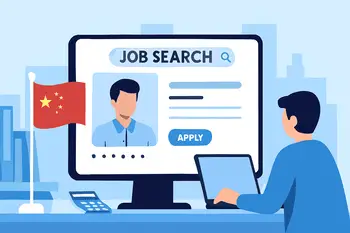
This summer, changes to China’s visa regulations may make the country a significantly more attractive destination for foreign IT professionals seeking new career opportunities.
The reforms are intended to simplify entry and provide clearer pathways for skilled workers, potentially opening doors for engineers, developers, data scientists, DevOps specialists, cybersecurity experts, product managers, and other technology professionals looking to work in China.
Overview of the proposed visa shifts
The announced reforms aim to prioritize skilled talent, streamline application procedures, and provide more transparent eligibility criteria.
Key themes are expected to include clearer definitions of qualifying skill sets, faster processing for high-demand roles, and reduced administrative hurdles for companies that want to hire foreign specialists.
These changes reflect China’s strategic interest in bolstering domestic innovation and filling gaps in industries where local supply of senior technical talent remains constrained.
Why IT professionals should pay attention
- Demand and opportunity: China’s tech industry remains one of the world’s largest and fastest-moving markets. Major cities such as Beijing, Shanghai, Shenzhen, and Hangzhou continue to incubate startups and host global R&D centers.
- Career acceleration: Working in China can expose IT professionals to very large user bases, high transaction volumes, and engineering problems at scale that are less common elsewhere.
- Compensation and equity: Senior hires can receive competitive salaries, bonuses, and equity packages from startups or multinational subsidiaries expanding their China operations.
- Unique learning environments: Rapid product iteration cycles, cross-disciplinary collaboration, and deeply localized product design offer steep learning curves.
Visa types relevant to IT hires
- Z visa (work visa): The most common route for foreigners employed by a China-based employer. It requires a work permit or foreigner’s work permit notice issued by local authorities and an invitation letter from the hiring company.
- R visa (talent visa): Designed for high-level talent with critical expertise or outstanding achievements. It typically offers longer stays and faster approvals for specially qualified candidates.
- X visa (student visa): Suitable for graduates who want to pursue further study or internships that might later transition to work permits.
- Business (M) and short-term work: Contractors, consultants, and project-based IT experts sometimes use business visas for short-term project work followed by local contracting or local entity setup for longer engagements.
Each visa has different documentation, processing timelines, and eligibility thresholds. The reforms under discussion aim to make the distinctions clearer and to expand pathways for highly skilled IT talent, particularly through more accessible R visas and streamlined Z visa processes for priority roles.
How companies will benefit
- Faster hiring cycles: Simplified visa processes shorten time-to-hire for foreign specialists, enabling products and platform development to proceed without long talent gaps.
- Access to global expertise: Easier visa access helps companies import missing expertise—cloud architects, machine learning researchers, and security specialists—more readily.
- Competitive advantage: Firms that can onboard experienced foreign talent quickly will be better positioned to innovate and scale.
- Talent pipelines: Clearer policy signals encourage long-term recruitment planning, partnerships with overseas universities, and targeted relocation programs.
What roles and skills are likely to be prioritized
The reforms are expected to favor skills aligned with national priorities and industry shortages.
Likely high-priority categories include:
- Artificial intelligence and machine learning research and engineering.
- Cloud platform engineering, distributed systems, and site reliability engineering.
- Cybersecurity, secure software development, and compliance specialists.
- Data engineering, data architecture, and analytics at scale.
- Embedded systems and IoT engineering for smart devices and industrial automation.
- Mobile development and high-performance backend systems engineering.
- Product leadership and technical program management for large-scale product delivery.
Candidates with experience in high-impact projects, publications, patents, or demonstrable technical leadership are more likely to be fast-tracked under talent-focused visa streams.
Practical guide for IT professionals considering a move
- Evaluate eligibility early
- Review your CV for quantifiable achievements: systems shipped, scale (users, transactions), patents, publications, or open-source contributions.
- Identify gaps versus typical R or Z visa expectations: seniority level, certifications, or documented leadership.
- Engage employers proactively
- Ask hiring managers about their experience sponsoring foreign talent and how the company handles work permit applications.
- Prefer companies with in-house HR or legal teams experienced in foreign talent onboarding.
- Prepare crucial documents
- Up-to-date passport with at least six months validity and spare blank pages.
- Academic diplomas, professional certificates, and notarized translations where required.
- Reference letters on company letterhead describing role, compensation, and reasons for needing foreign expertise.
- A detailed CV in English and, when helpful, a Chinese translation emphasizing measurable results.
- Get credential verification in order
- Some visa categories require degree verification and police or health clearances. Start these background tasks early because they can take weeks.
- Understand local employment contracts
- Standard Chinese contracts define trial periods, social insurance contributions, and non-compete clauses. Seek clarity on salary composition (base pay, benefits, bonuses, equity).
- Plan tax and social security
- Learn tax residency rules, anticipated income tax rates, and employer social insurance obligations. Seek professional advice for salary structuring and potential tax equalization clauses.
- Budget relocation realistically
- Allow for initial deposits, temporary housing, flights, visa processing fees, and international moving costs. Some employers offer relocation packages—confirm what’s included.
- Consider family logistics
- If relocating with family, understand dependent visa options, international school options, spousal employment possibilities, and healthcare access.
How to position your CV and interviews for China roles
- Emphasize outcomes and scale: Chinese employers often prioritize proof that you’ve handled systems at real-world scale.
- Demonstrate product impact: Tie technical work to measurable product improvements—performance gains, retention increases, revenue impact.
- Highlight collaboration in multicultural teams: Show examples of remote collaboration, cross-border product launches, or work with distributed engineering teams.
- Show adaptability and rapid delivery: Provide anecdotes of delivering solutions quickly under ambiguous requirements.
- Learn basic Mandarin phrases: Even minimal language ability signals cultural adaptability and respect, improving your candidacy in interviews.
Networking and job search strategies
- Local and international job boards: Combine international platforms with China-focused tech job boards and platforms that specialize in expat hiring.
- LinkedIn and GitHub visibility: Keep GitHub repos up to date and LinkedIn well-curated with clear summaries and tech stack highlights.
- Alumni and professional groups: Reach out to university alumni and professional associations with China connections.
- Meetups and conferences: Attend virtual and in-person conferences focused on AI, cloud, and security that attract hiring managers and technical leaders from China.
- Recruiters specialized in China tech: Use recruiters who routinely place foreign technical talent in China and can advise on salary ranges and visa realities.
Sanity check on compensation and cost of living
- Salaries vary widely by city and seniority. Tier-one cities command higher cash compensation but also higher living costs.
- Total compensation often includes bonuses, housing allowances, stock options, or relocation packages.
- Health care and schooling costs for expat families can be high; verify benefits carefully.
- Salary negotiations should consider the local tax rate, employer social contributions, and cost of living adjustments if you’re moving from a lower-cost country.
Common onboarding and HR hurdles
- Timing mismatches: Visa processing can lag behind recruiter timelines. Clarify expected start dates and contingency plans.
- Work permit dependencies: Some cities require companies to meet criteria (registered capital, headcount) before they can sponsor foreign workers.
- Variability across cities: Local municipal rules differ; an employer experienced in one city may face a different process in another.
- Language of paperwork: Expect official documents in Chinese. Request translations and get comfortable with HR processes that rely on local forms.
Living and working culture differences
- Pace and intensity: Many Chinese tech companies move at high velocity with intense release schedules and rapid experimentation.
- Hierarchy and respect: Professional hierarchies can be more formal; recognizing local norms helps with cross-team collaboration.
- Work hours and expectations: Work hours vary drastically across companies; some startups expect extended availability while multinational firms often follow more predictable schedules.
- Decision-making: Chinese product teams may favor speed and iterative improvements, sometimes prioritizing business objectives and rapid growth over perfect design.
City-specific notes: Shanghai, Beijing, Shenzhen, Hangzhou
- Shanghai: International, diverse, strong finance and cloud presence. Excellent expat amenities and international schools.
- Beijing: Research-heavy with large AI and fintech hubs, home to flagship R&D centers of major companies.
- Shenzhen: Hardware, embedded systems, and hardware-software integration hotspots. Entrepreneurial culture with supply-chain advantages.
- Hangzhou: E-commerce and cloud services with major companies headquartered here; strong product-driven culture.
Choose the city that aligns with your domain: cloud and enterprise software often cluster in Shanghai and Beijing, hardware and manufacturing in Shenzhen, and e-commerce and cloud in Hangzhou.
Remote and hybrid work realities
- Post-pandemic, many companies have adopted hybrid approaches, but remote work across borders is still complicated by legal and tax issues.
- If your prospective employer wants you to remain overseas while working for a China entity, ensure contract clarity and compliance with tax and labor laws.
- Employers sometimes prefer on-site presence for key roles tied to product launches, security, or hardware integration.
Cultural integration and daily life tips
- Language: Learning Mandarin basics speeds everyday tasks and demonstrates goodwill. Translation apps are helpful, but formal interactions often benefit from a local interpreter or bilingual HR contact.
- Social norms: Business meals, gift etiquette, and basic cultural norms matter for relationship-building.
- Housing: Temporary serviced apartments are common for new arrivals. Work with relocation agents who know the local rental process and required deposits.
- Healthcare: International clinics and insurance are recommended. Confirm what employer-provided health insurance covers and whether it includes evacuation or international referrals.
- Transport: Public transport in major cities is efficient. Owning a car is typically unnecessary in large urban centers.
Case studies and example scenarios
- Senior cloud architect: A US architect with a track record of migrating multi-tenant workloads to Kubernetes was recruited by a Shanghai-based SaaS company. Employer sponsored an R visa due to the candidate’s patents and public talks on cloud resilience. Relocation package included housing stipend and Mandarin lessons.
- Machine learning lead: A Europe-based researcher with publications in top ML conferences joined a Beijing team. The local HR guided degree verification and secured a fast-tracked work permit under talent-driven policies. Onboarding included collaboration with local research labs and access to large-scale proprietary datasets.
- DevOps specialist: A contractor experienced in CI/CD and observability joined a Shenzhen hardware startup on a short Z visa for a product launch. The company later converted the role to a full-time position and sponsored a standard work visa, handling social insurance enrollment and tax registration.
These real-world patterns illustrate how different companies and visa categories are used depending on seniority, domain, and the company’s HR maturity.
Checklist for a successful move
- Clean and quantifiable CV emphasizing scale and impact.
- Copies of degrees, certificates, and notarized translations.
- Reference letters describing role necessity for foreign expertise.
- A clear conversation with hiring HR about visa timelines and responsibilities.
- Budget for relocation and initial living costs.
- Clarify tax, social insurance, and benefits in writing.
- Housing and schooling plan if relocating with family.
- Learn basic Mandarin phrases and cultural norms.
- Confirm health insurance coverage and international evacuation clauses.
Frequently asked questions
- Will visa changes eliminate employer sponsorship requirements?
- No. Employers will likely still play a primary role in sponsoring work permits, but streamlined rules and talent visas should reduce friction for highly qualified candidates.
- How long will the new processes take?
- Processing times depend on the visa type, city, and company readiness. Talent visas aim to be faster for qualified applicants, while standard work permits may follow regular municipal processing timelines.
- Can contractors or freelancers work from within China?
- Short-term contracts are possible under business visas for limited engagements, but long-term freelancing typically requires local legal entity involvement, contracting through a local employer of record, or conversion to a work visa.
- Are Mandarin skills mandatory?
- Not mandatory for many technical roles, especially at senior levels or in multinational teams, but basic Mandarin and cultural awareness are strong advantages for daily life and team integration.
- What if my spouse wants to work?
- Dependent visa rules vary. Spousal employment often requires the spouse to obtain their own work permit or to work through a local entity. Verify dependent visa provisions and local rules ahead of time.
Preparing for negotiation
- Understand local salary bands and typical benefit packages for your role and city.
- Negotiate for a clear compensation structure: base salary, guaranteed bonuses, equity, housing allowance, and relocation reimbursement.
- Request assistance with tax advising and a clear explanation of social insurance contributions.
- Ask for a contingency plan if visa processing delays affect the start date or relocation schedule.
Long-term career considerations
- Career mobility: Gaining China experience can be a springboard to regional leadership roles across Asia or to remote leadership roles in global companies.
- Building networks: Long-term relationships with local engineers, product managers, and universities can yield opportunities for entrepreneurship, research collaborations, and leadership roles.
- Intellectual property and publication: Understand local rules on IP, publications, and patents. Clarify ownership and rights with employers before joining.
Final guidelines for success
- Start the visa conversation early and get precise timelines from HR.
- Document everything: contracts, visa approvals, payroll setup, and tax advice.
- Maintain professional visibility through open-source contributions, conference talks, and publications.
- Learn the rhythms of local business culture and be prepared to iterate quickly.
- Choose an employer with demonstrated success in sponsoring and supporting foreign hires.
The evolving visa landscape signals a clearer path for international IT talent to contribute to China’s ambitious technology agenda.
With careful preparation, robust documentation, and realistic negotiations, experienced IT professionals can take advantage of these opportunities to work on large-scale systems, accelerate their careers, and engage with some of the most dynamic engineering challenges in the world.



